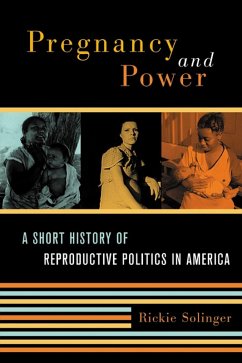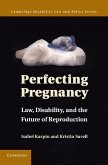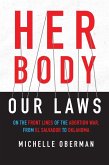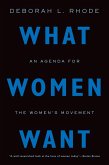A sweeping chronicle of women's battles for reproductive freedom throughout American history, Pregnancy and Power explores the many forces-social, racial, economic, and political-that have shaped women's reproductive lives in the United States.
Leading historian Rickie Solinger argues that a woman's control over her body involves much more than the right to choose an abortion. Reproductive politics were at play when slaveholders devised breeding schemes, when the U.S. government took Indian children from their families in the nineteenth century, and when doctors pressed Latina women to be sterilized in the 1970s. Tracing the diverse plot lines of women's reproductive lives throughout American history, Solinger redefines the idea of reproductive freedom, putting race and class at the center of the effort to control sex and pregnancy in America over time.
Solinger asks which women have how many children under what circumstances, and shows how reproductive experiences have been encouraged or coerced, rewarded or punished, honored or exploited over the last 250 years. Viewed in this way, the debate over reproductive rights raises questions about access to sex education and prenatal care, about housing laws, about access to citizenship, and about which women lose children to adoption and foster care.
Pregnancy and Power shows that a complete understanding of reproductive politics must take into account the many players shaping public policy-lawmakers, educators, employers, clergy, physicians-as well as the consequences for women who obey and resist these policies. Tracing the diverse plotlines of women's reproductive lives throughout American history, Solinger redefines the idea of reproductive freedom, putting race and class at the center of the struggle to control sex and pregnancy in America.
Dieser Download kann aus rechtlichen Gründen nur mit Rechnungsadresse in A, B, BG, CY, CZ, D, DK, EW, E, FIN, F, GR, HR, H, IRL, I, LT, L, LR, M, NL, PL, P, R, S, SLO, SK ausgeliefert werden.
Hinweis: Dieser Artikel kann nur an eine deutsche Lieferadresse ausgeliefert werden.









